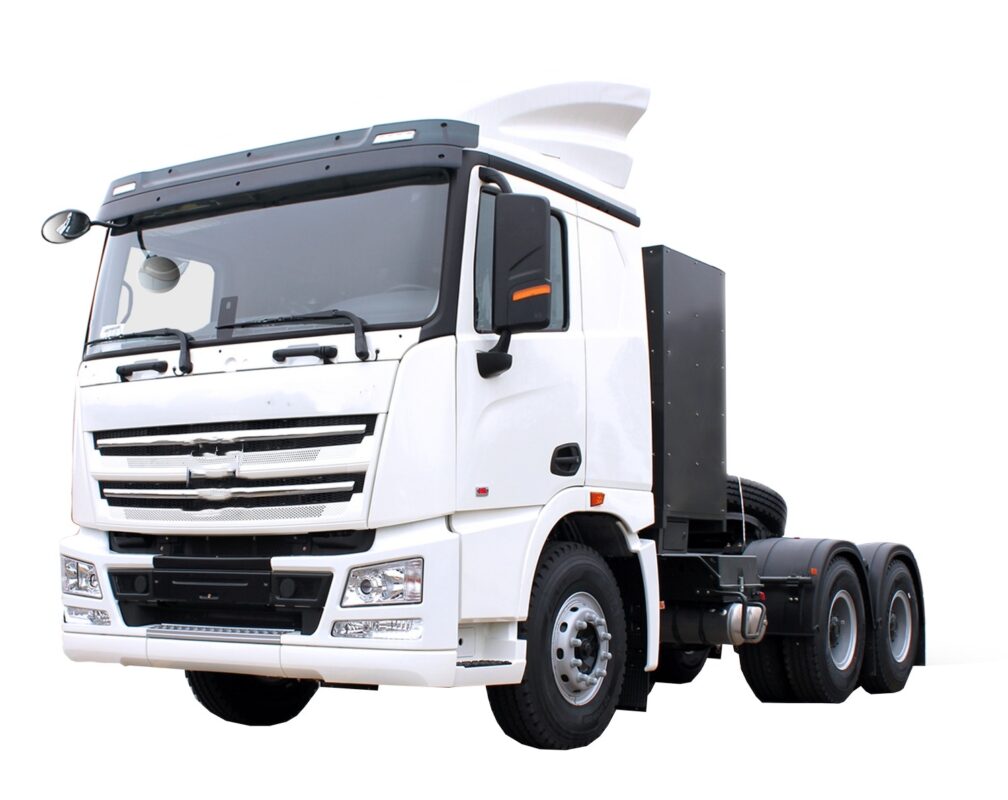Elektriese Vragmotor Nuus
Why are electric logistics vehicles so popular?
Geplaas op deur Elektriese vragmotors
In today’s rapidly evolving transportation landscape, elektriese logistieke voertuigs have emerged as a highly popular and promising option. There are numerous reasons behind their growing popularity, ranging from cost savings and environmental benefits to technological advancements and practical considerations. Let’s explore in detail “Why are elektriese logistieke voertuigs so popular?”
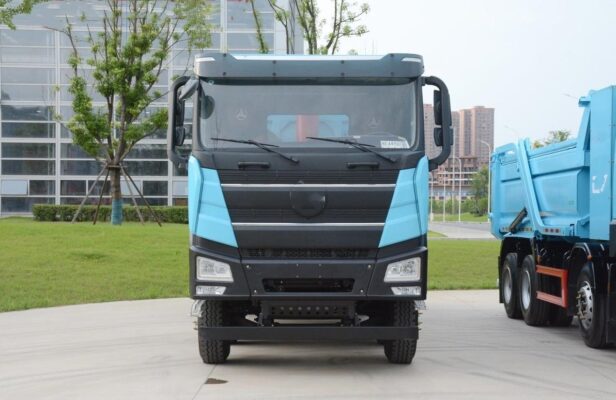
Reasons for the popularity of electric logistics vehicles:
(1) Meeting the need for improved last-mile transportation:
Pure elektriese logistieke voertuigs have found a solid entry point in the market. Currently, the overall urban logistics market in our country is largely mature. Egter, the transportation for the last kilometer has been dominated by various means such as motorcycles, electric tricycles, electric bicycles, and old cross-passenger vehicles. While these modes of transportation have been serving a certain purpose, their road operation cannot meet the evolving development needs of society and enterprises from multiple perspectives.
From a public safety standpoint, some of these traditional last-mile transportation options may lack proper safety features, increasing the risk of accidents. Electric logistics vehicles, aan die ander kant, are designed with safety in mind, with features such as stable braking systems and reinforced structures.
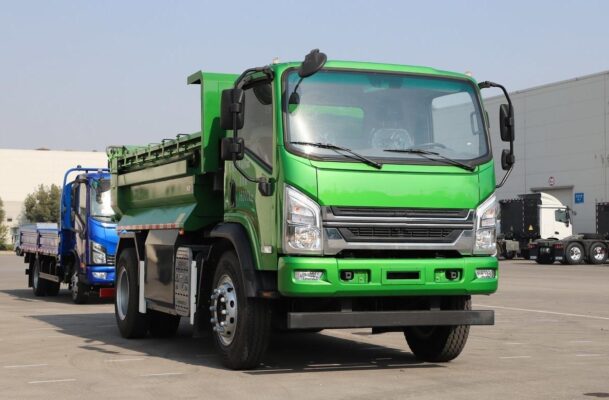
In terms of energy consumption, traditional vehicles used for last-mile delivery often rely on fossil fuels, which are not only expensive but also contribute to environmental pollution. Electric logistics vehicles, powered by electricity, are more energy-efficient and have a lower carbon footprint.
From an environmental perspective, the use of elektriese logistieke voertuigs helps reduce air pollution and greenhouse gas emissions. As cities around the world are becoming more conscious of environmental issues, the adoption of electric vehicles for logistics is seen as a step in the right direction.
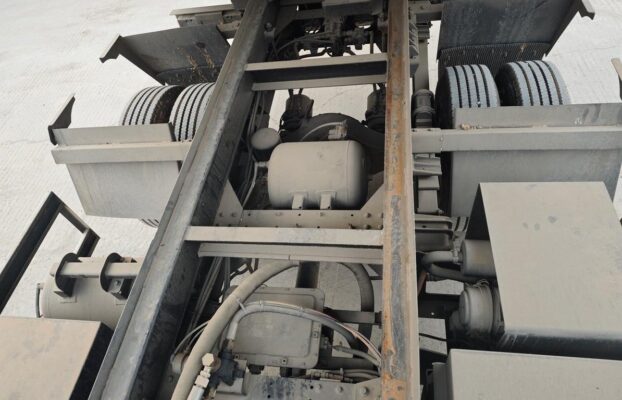
Bowendien, from the perspective of enterprise image and efficiency, companies that use elektriese logistieke voertuigs can project a more environmentally friendly and forward-thinking image. This can enhance their brand reputation and attract customers who are also concerned about sustainability. Daarbenewens, elektriese logistieke voertuigs can offer better operational efficiency due to their quiet operation, lower maintenance costs, and the ability to access certain areas restricted to traditional fuel-powered vehicles.
Byvoorbeeld, in a busy urban area, an e-commerce company that uses elektriese logistieke voertuigs for last-mile delivery can not only reduce its environmental impact but also improve its delivery times by avoiding traffic congestion and accessing narrow streets and alleys more easily.
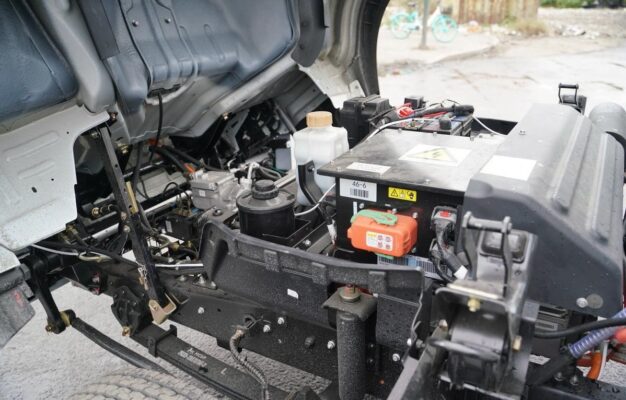
(2) Ideal for urban express delivery and last-mile logistics:
At present, pure elektriese logistieke voertuigs have a relatively short cruising range, which may seem like a limitation. Egter, this characteristic actually makes them well-suited for urban express delivery tasks. Specifically, these vehicles can meet the requirements of urban express delivery, where goods are delivered during the day and the vehicles can return to the base for charging at night.
They are not designed for long-distance operation between cities. Logistics enterprises typically use this category of models for secondary express delivery and last-mile logistics distribution. The main models are special vehicles for short-distance transportation and MPV or light passenger vehicle models.
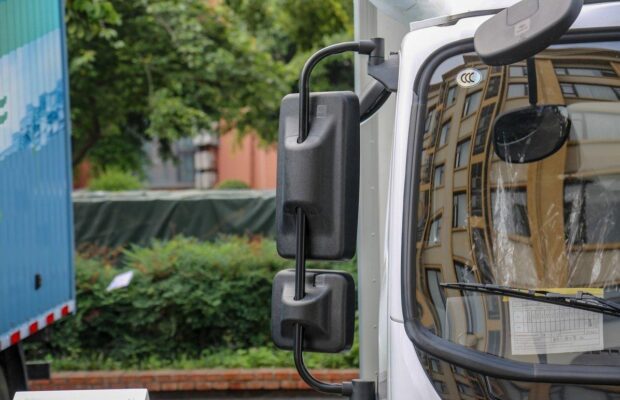
For urban logistics operations, the shorter range of elektriese logistieke voertuigs is not a major drawback. The typical daily delivery routes within a city are relatively short, and the vehicles can easily return to the charging station at the end of the day. This allows for efficient and cost-effective operations without the need for frequent refueling stops.
Imagine a courier company operating in a large city. By using elektriese logistieke voertuigs, they can complete multiple delivery rounds within the city limits without worrying about running out of power. At night, the vehicles can be charged at the company’s depot, ready for the next day’s deliveries.
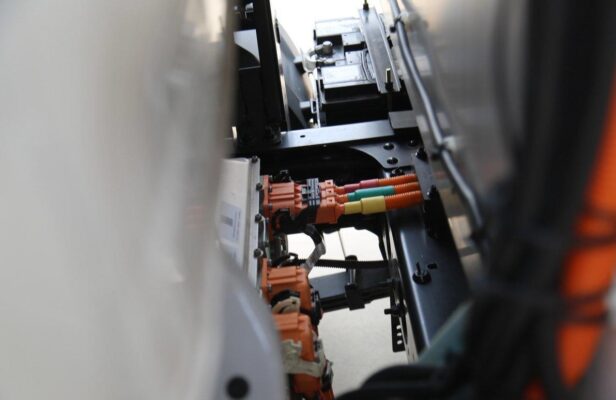
(3) Abundant basic vehicle resources and versatility:
There are abundant basic vehicle resources available for converting traditional cars into pure elektriese logistieke voertuigs. This conversion process not only allows for the utilization of existing vehicle platforms but also offers several advantages.
Converted elektriese logistieke voertuigs can serve both as people carriers and for transporting goods. Their versatility makes them suitable for a wide range of applications. Daarbenewens, they can be modified into special vehicles with a wide range of uses, depending on the specific needs of different industries.
Byvoorbeeld, a traditional fuel small truck (MPV or light passenger vehicle) can be converted into an elektriese logistieke voertuig for short-distance transportation. These vehicles can be used for tasks such as delivering parcels, transporting groceries, or even as mobile workshops for certain services.
Bowendien, converting traditional cars into pure electric vehicles currently has little impact on the original market. This means that the existing infrastructure and supply chains for traditional vehicles can be leveraged to support the growth of elektriese logistieke voertuigs.
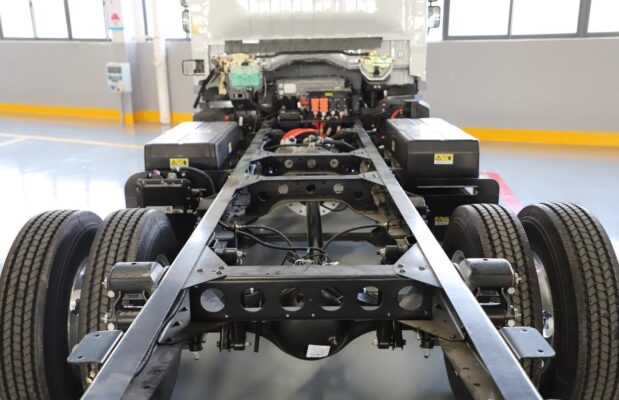
(4) Mature technology and continuous improvement:
The technology of pure elektriese logistieke voertuigs is basically mature. Currently, elektriese logistieke voertuigs are all pure electric vehicles without transitional products such as hybrids and extended-range (plug-in) vehicles. The three core (battery, motor, and electronic control) component technologies of such vehicles are well-developed and have been tested and refined over time.
Although the quantity of elektriese logistieke voertuigs on the market has not yet reached the same scale as traditional fuel-powered vehicles, their cost is relatively high. Egter, as technology continues to advance and economies of scale are achieved, the cost of elektriese logistieke voertuigs is expected to decrease.
Byvoorbeeld, improvements in battery technology are leading to longer ranges and shorter charging times, making elektriese logistieke voertuigs even more attractive for businesses. Daarbenewens, advancements in motor and electronic control systems are enhancing the performance and reliability of these vehicles.
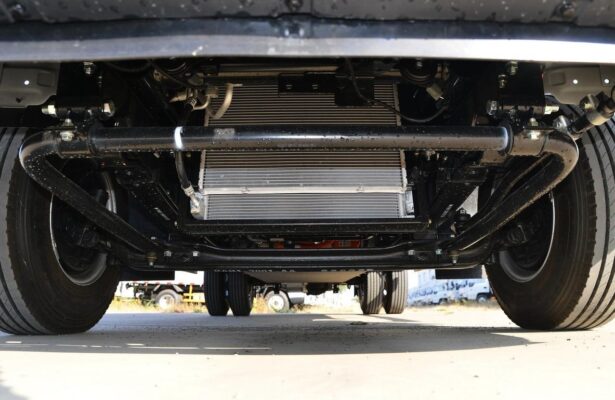
(5) Utilization of existing marketing networks:
The pure electric (logistics) vehicle marketing network does not need to be newly built. Instead, these vehicles can use the existing marketing networks established for traditional vehicles. This is a significant advantage as it reduces the time and cost required to bring elektriese logistieke voertuigs to the market.
At present, a total of 218 elektriese logistieke voertuigs of 62 brands are included in the catalog. In many cases, the basic model is a traditional model that has been modified to incorporate electric powertrains. What is changed is the “three electrics” part (battery, motor, and electronic control), and what is changed is the manufacturer’s brand.
This approach allows for a seamless transition for consumers and businesses who are already familiar with traditional vehicle brands and marketing channels. It also enables manufacturers to leverage their existing infrastructure and expertise to promote and sell elektriese logistieke voertuigs.
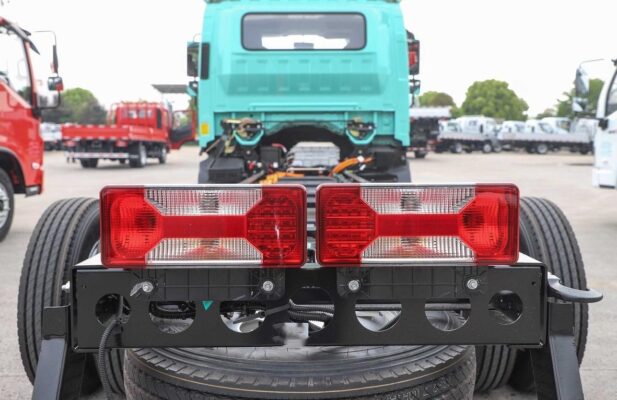
(6) Less dependence on extensive charging infrastructure:
Pure elektriese logistieke voertuigs do not highly depend on extensive charging facilities, which is another factor contributing to their popularity. The continuous mileage per charge is about 180 kilometers, which is sufficient for most urban logistics operations.
The on-board charger is an AC charging interface of 220V, which makes it convenient to charge the vehicles at various locations. The power consumption is relatively low, with a distribution of about 45 degrees.
This means that businesses can charge their elektriese logistieke voertuigs at their own depots, parking lots, or even at public charging stations if available. The flexibility in charging options reduces the barriers to entry for businesses considering the adoption of electric vehicles.
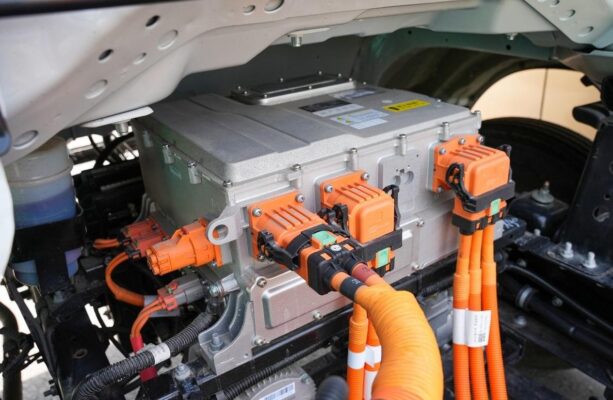
Byvoorbeeld, a small logistics company can install a few charging points at its warehouse and easily manage the charging of its fleet of elektriese logistieke voertuigs. This eliminates the need for a large-scale dedicated charging infrastructure and reduces the initial investment.
Ter afsluiting, elektriese logistieke voertuigs are popular for a variety of reasons. Their ability to meet the needs of last-mile transportation, suitability for urban express delivery, abundance of basic vehicle resources, mature technology, utilization of existing marketing networks, and less dependence on extensive charging infrastructure all contribute to their growing popularity. As the world continues to move towards more sustainable transportation solutions, elektriese logistieke voertuigs are likely to play an increasingly important role in the future of logistics and transportation. If you have any questions about elektriese logistieke voertuigs, feel free to contact us at any time.
